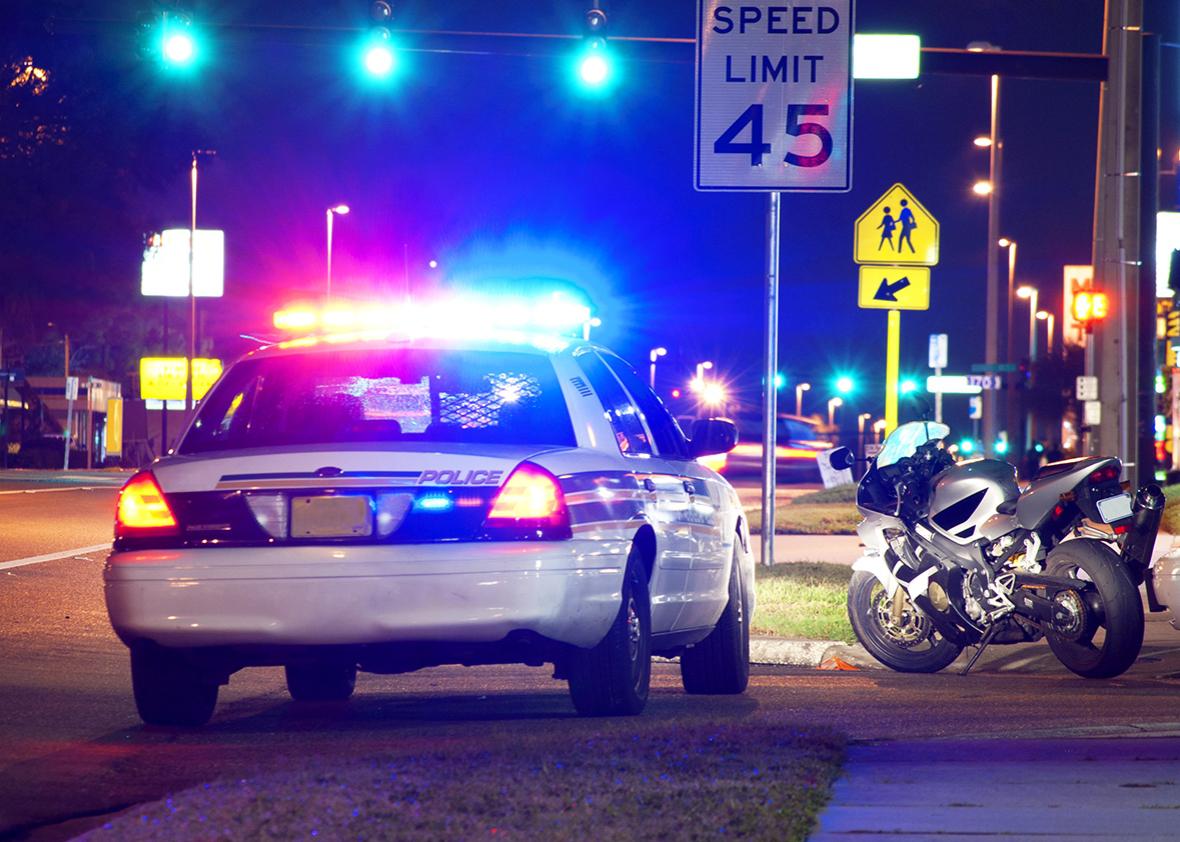Of the many forms of police harassment faced by communities of color, “driving while black” is probably the most well-known, well-documented, and prominently used method. The underpinnings for police to racially profile black motorists—the authority of the police to forcibly detain motorists for minor traffic infractions as a pretext to search a motorist and his car—has even been enshrined by the Supreme Court.
Recently, a federal court has given constitutional credence to an even grosser abuse of citizens by police: Let’s call it “parking while black.” In United States v. Johnson, decided in May, the 7th U.S. Circuit Court of Appeals voted 2–1 to uphold a police search of a group of black people who were just sitting in a parked car. Fortunately, the entire circuit is going to rehear the case, which could decide whether the insidious practice of racial profiling of motorists on the highway will extend to racial profiling of motorists in parked cars.
If the Fourth Amendment doctrine that allows police to use minor traffic infractions such as changing lanes without signaling as a pretext to search citizens—a practice that is overwhelmingly applied to black citizens—is allowed to extend to parking, the consequences would be grave. Should the full 7th Circuit—or eventually the Supreme Court—choose to uphold the current ruling, a police officer would have the constitutional authority to approach any motorist sitting in a parked car who may be violating a parking ordinance such as standing in a loading zone, near a fire hydrant, or within a few feet of an alley or private driveway; order all of the occupants out of the car; and then search the occupants and the car. Again, this prospect is staggering; recent statistics show convincingly that black motorists are stopped far more often than white motorists.
Nonetheless, a few courts have in fact reviewed instances of alleged racial profiling by police of motorists in parked cars and found these stops to be constitutional. In one recent case in Chicago, police confronted a black motorist who was parked near a crosswalk in a no-parking zone, ordered him out of the car because “he was in the process of committing a parking offense,” and frisked him.
The 7th Circuit case in question, United States v. Johnson, is the most egregious instance of police aggressively targeting black motorists who may be illegally parked. In Johnson, the police used SWAT-team tactics to swoop down on a car that may have been parked too close to a crosswalk in apparent violation of a Milwaukee parking ordinance. Two police cruisers operated by a neighborhood police task force assigned to high-crime areas, or “hot spots,” with strobe spotlights glaring, surrounded the car parked in front of a liquor store on a bitterly cold January night. Snow covered the streets and the crosswalk, wind chill was 20 degrees below zero, and it was not clear how close the car even was to the crosswalk. Four black passengers were seated in the car; the driver apparently had just gone into the liquor store, leaving the car’s motor running. Five officers emerged from the cruisers with flashlights, immediately opened the car doors, ordered the passengers out, handcuffed them, and searched the car, finding a gun inside the car that one of the passengers, Randy Johnson, apparently had put there. The government argued that the police had probable cause to forcibly detain the car and its passengers based on the parking violation, and then use that detention as a pretext to do a more thorough search.
The 7th Circuit agreed with the government that the police did not violate the defendant’s Fourth Amendment rights. The majority reasoned that since the police had probable cause to believe that the car was parked near a crosswalk in violation of the parking ordinance, they were allowed to forcibly detain the car and search the occupants. The fact that the police may have decided to pounce on the car for reasons unrelated to the parking violation did not matter, nor did the court feel it had to consider the possibility that the car was loading or unloading passengers, a recognized exception under the parking ordinance. As the majority observed, probable cause does not require law enforcement to eliminate all lawful explanations for what they see.
In a blistering dissent, Judge David Hamilton saw the case very differently. He described the police conduct as “terrifying,” “outrageous,” and “extraordinary.” The police, he argued, could not have reasonably suspected a parking violation when they surrounded the car. They could not have known in the few seconds it took them to swoop down on the car whether the motorist was behaving lawfully in stopping, even at a restricted spot, to let out or let in passengers. Indeed, the police had no suspicion at all that any violation was taking place at the time they decided to move in on this car.
Why did the police decide to target this vehicle? Was it the neighborhood? The race of the occupants? Hamilton speculated on whether the police would have engaged in similarly terrifying and outrageous conduct in a wealthier white neighborhood. As he observed wryly, “Imagine that the police tried that approach in Milwaukee’s affluent east side. Citizens would be up in arms, and rightly so.” And, he added, “No police officer could expect to keep his job if he treated a standing car as worthy of a [forcible] stop.”
Clearly, as Hamilton sees it, the conduct of the Milwaukee police crossed the constitutional line and reflected, at best, terrible judgment or, at worst, racist policing. It appears that Hamilton’s ferocious dissent may have provoked the entire 7th Circuit to rehear the case. The panel decision was vacated last month, and reargument has been ordered. It remains to be seen whether the entire circuit court will see it as Hamilton did or whether “parking while black” will sadly become as common a phrase as “driving while black.”
